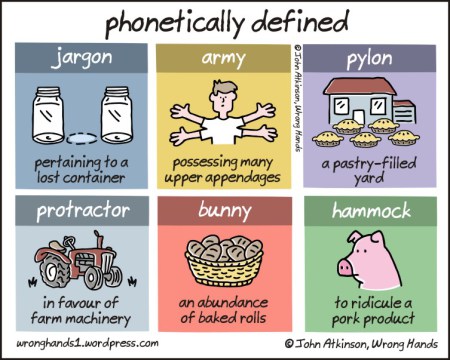Archive for November, 2015
On the attacks in Paris
All of my friends in Paris are safe.
I don't know of any linguistic angle to these events. [Update — I do now, thanks to Sally in the comments.]
But here's a relevant (if ambiguous) comment, in form of Victor Hugo's 1828 poem L'Enfant:
Read the rest of this entry »
Sex, drugs, and cognitive psychology
Recently, two strands of idle thought and reading came unexpectedly together: a paper about the psychology of free recall, published in 1944, and a 2007 book on the history of experimental psychology. I learned a couple of things, which I'll share with any of you who are interested.
Read the rest of this entry »
George Will discovers the idea of "facts"
The news recently has been full of the debate between George F. Will and Bill O'Reilly. This started because of O'Reilly's book Killing Reagan, whose central premise is that the unsuccessful 1981 assassination attempt was, in a deeper sense, successful. Will explains why this premise is important ("Bill O’Reilly makes a mess of history", Washington Post 10/10/2015):
The prolific O’Reilly has, with his collaborator Martin Dugard, produced five “history” books in five years: “Killing Lincoln,” “Killing Kennedy, “Killing Jesus,” “Killing Patton” and now the best-selling “Killing Reagan.” Because no one actually killed Reagan, O’Reilly keeps his lucrative series going by postulating that the bullet that struck Reagan in March 1981 kind of, sort of killed him, although he lived 23 more years.
O’Reilly “reports” that the trauma of the assassination attempt was somehow causally related to the “fact” that Reagan was frequently so mentally incompetent that senior aides contemplated using the Constitution’s 25th Amendment to remove him from office. But neither O’Reilly nor Dugard spoke with any of those aides — not with Ed Meese, Jim Baker, George Shultz or any of the scores of others who could, and would, have demolished O’Reilly’s theory. O’Reilly now airily dismisses them because they “have skin in the game.” His is an interesting approach to writing history: Never talk to anyone with firsthand knowledge of your subject.
Instead, O’Reilly made the book’s “centerpiece” a memo he has never seen and never tried to see until 27 days after the book was published.
Read the rest of this entry »
Tibetan –> Chinese –> Chinglish
One of my graduate students sent me the following picture (click to embiggen):
Read the rest of this entry »
Linguistics Club
Today's xkcd:

Mouseover title: "If that's too easy, you could try joining Tautology Club, which meets on the date of the Tautology Club meeting."
Gabagool
Dan Nosowitz — "How capicola became gabagool: The Italian New Jersey accent, explained", Atlas Obscura 11/5/2015 — explains the backstory of this video clip:
Read the rest of this entry »
Devin, a newly discovered language
Jenny Chu sent me this photo of a simultaneous interpretation device she came across at an event in Shanghai today:
Read the rest of this entry »
Ma-Xi –> MaXi
What is the message conveyed by this strange photograph and the unusual writing on it?
Read the rest of this entry »
Take A Hint
Today's xkcd:
Mouseover title: "2060: The gregarious superintelligent AI, happily talking its way out of a box, is fast becoming a relic of the past. Today's quantum hyper-beings are too busy with their internal multiverse sims to even notice that they're in boxes at all!".
To be read along with this?
Pernicious garbage
The blogger of "The Wanderlust Diaries" has a post called "What China is This?" (10/17/15). In it, she includes the following sign as an example of the elusiveness of " correct English spelling and translation" in China, though she recognizes that there are now many Chinese who speak English fluently, in contrast to when she first went to China in 1994:
Read the rest of this entry »
Intentional mistranslation
From a student:
Here are very popular "emoticons" [VM: "image macros" might be more appropriate] that young Chinese people send each other while online chatting. They use "literal" translation of Chinese into English to achieve a comedic effect. I don't think they reflect the young generation's bad English; they actually suggest that the young Internet generation's English is good enough to understand that such translations are ridiculous and thus funny. My personal favourite is "I don't eat this condom."
wǒmen hǎoxiàng zài nǎ'er jiànguò 我们好像在哪儿见过
("it seems as though we've seen each other somewhere")
Read the rest of this entry »






